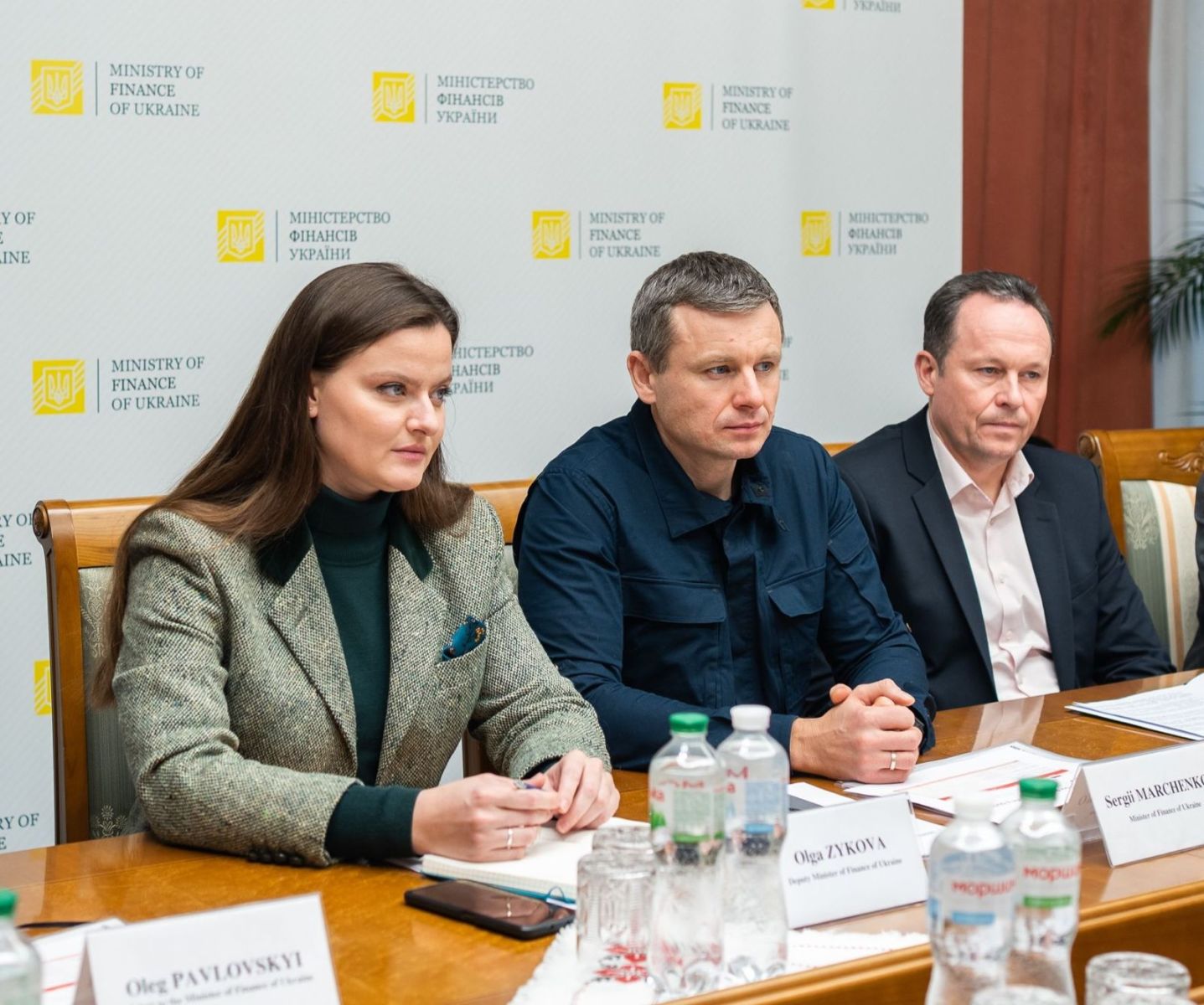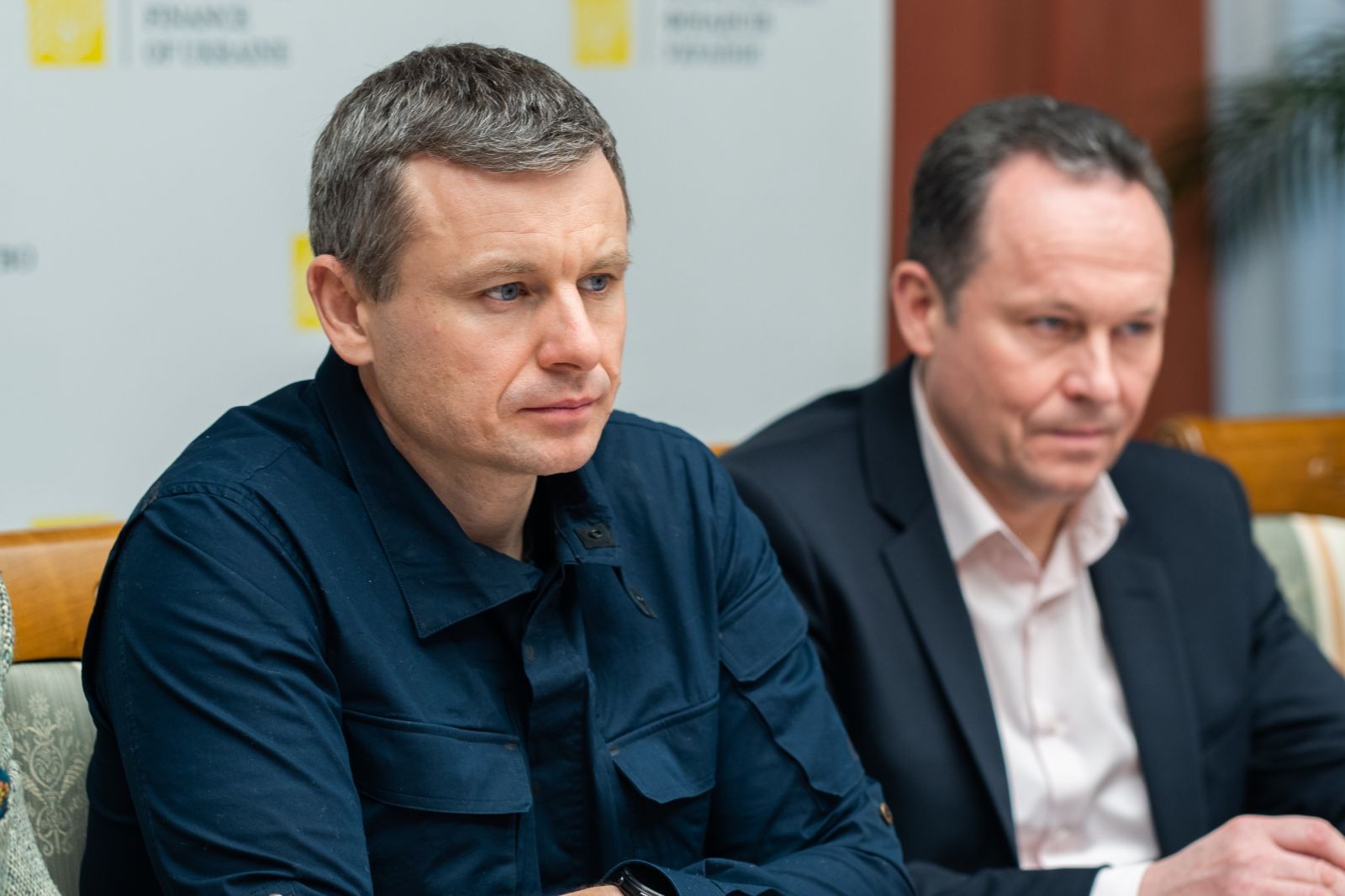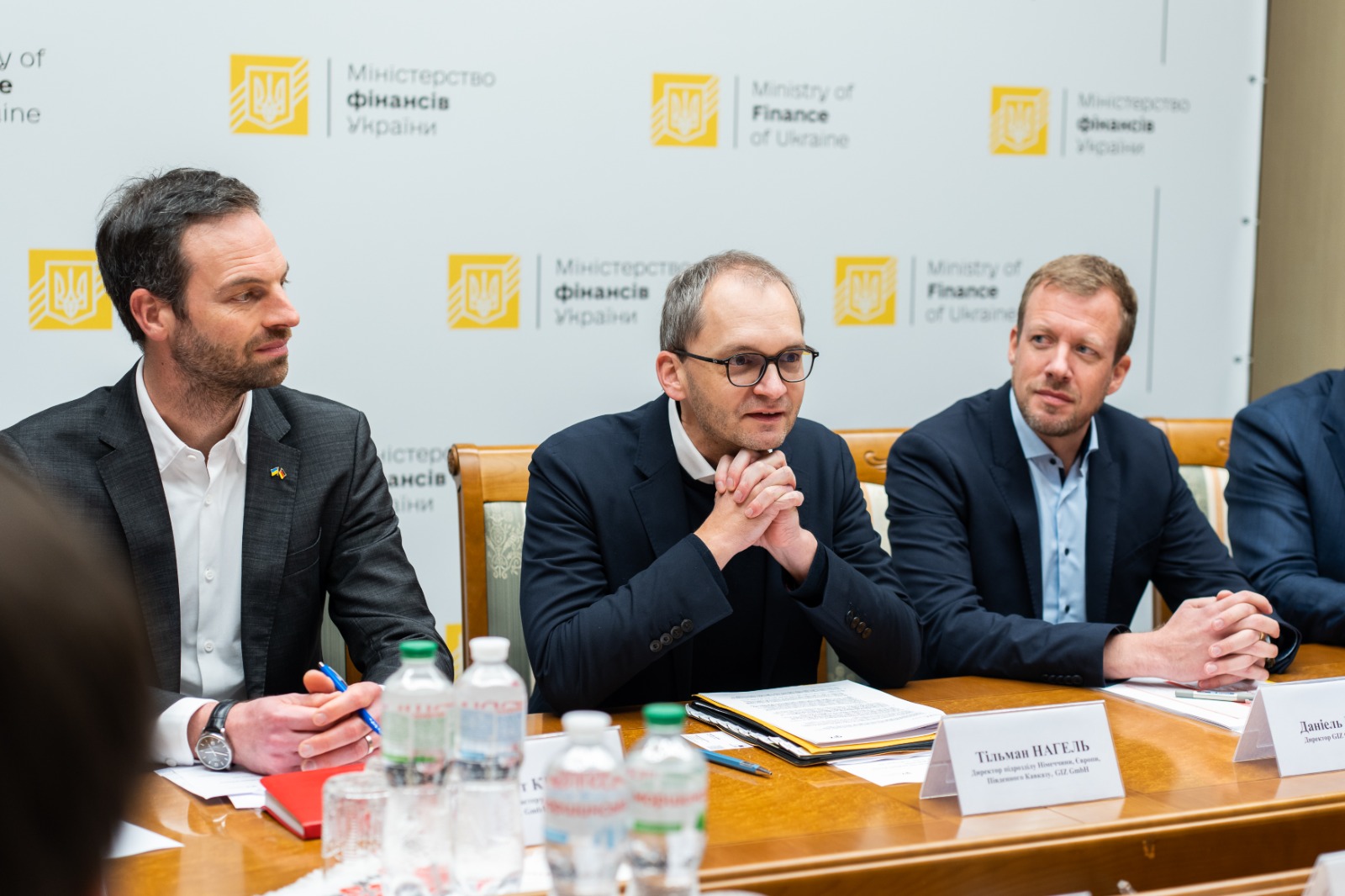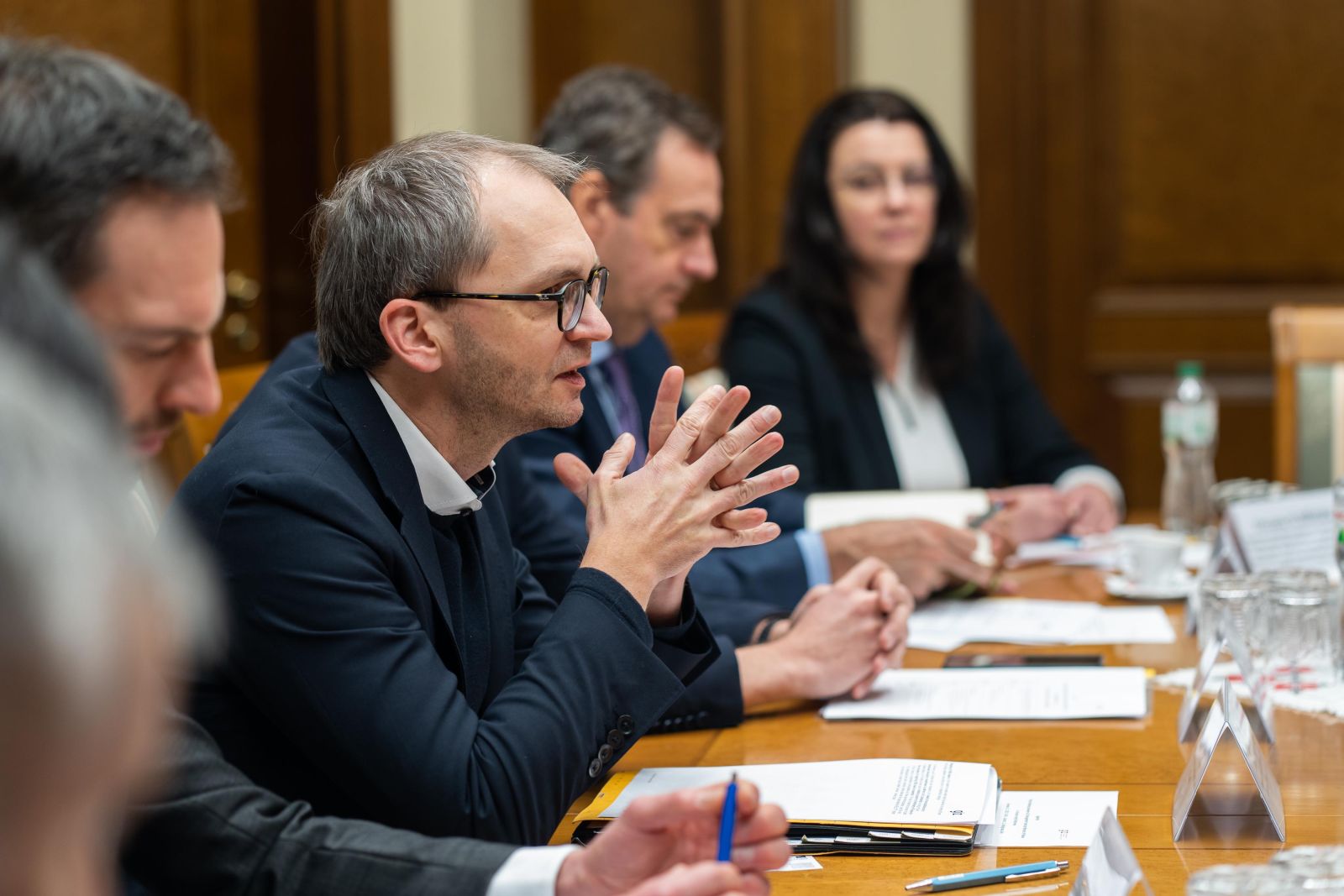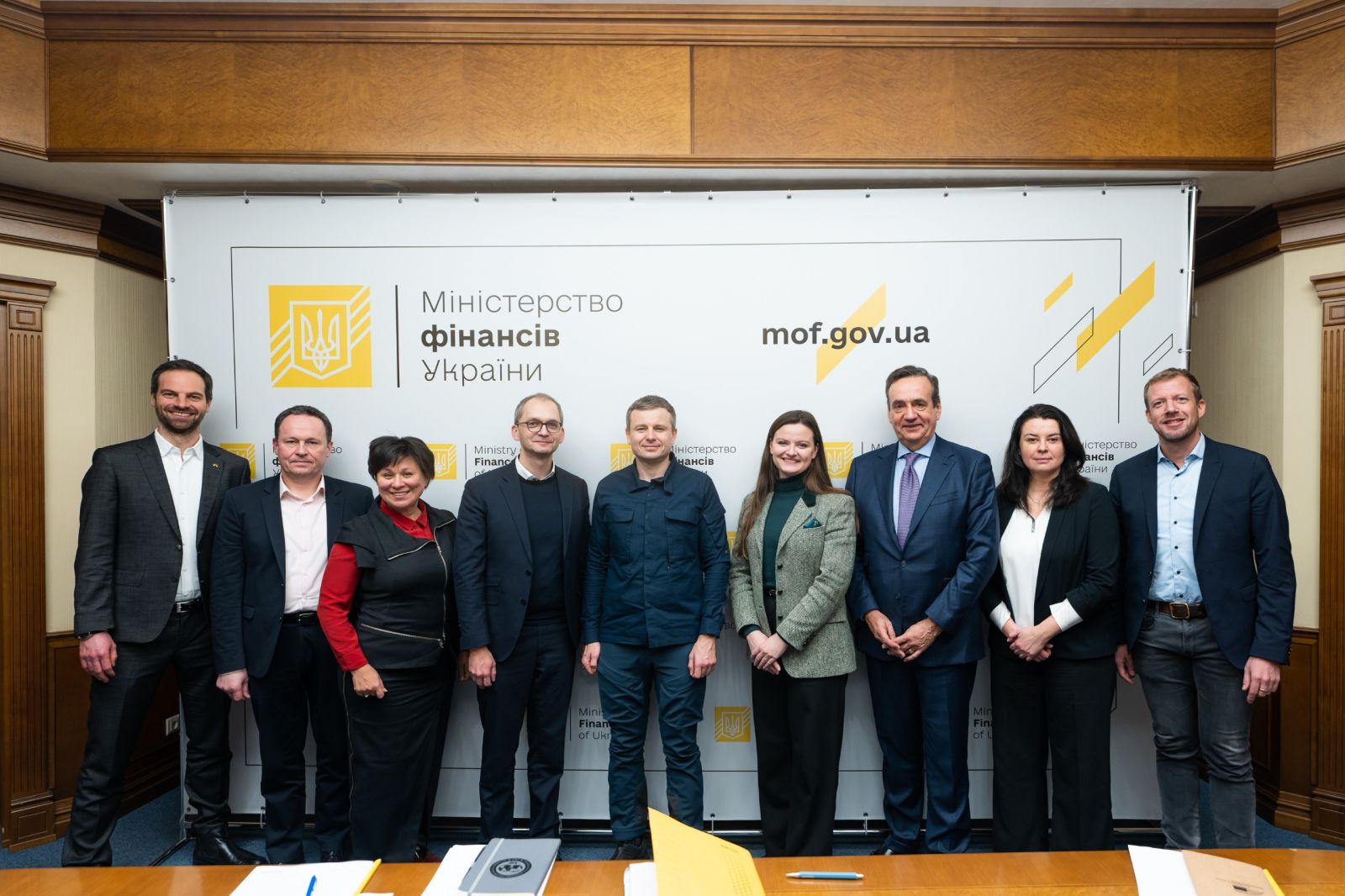Sergii Marchenko: Implementation of energy efficiency projects with GIZ is important for maintaining stable operation of Ukraine's energy sector and economy in times of war
-
About Ministry
- Recruitment
-
Accountable agencies
- State Enterprises and Institutions Belonging to the Sphere of Management of the Ministry
- State Service for Financial Monitoring
- State Treasury
- The State Audit Service of Ukraine
- State Tax Service of Ukraine
- State Customs Service of Ukraine
- Personnel Audit Procedures of State Customs Service
- State Tax University
- Minfin Panel
-
Policy Issues
- Budget policy
- Tax Policy
-
Customs Policy
-
Customs Reform
- Common transit mode
- System of simplifications
- General declaration of arrival
- Authorized economic operators
- The only window for international trade
- Promoting the protection of intellectual property rights
- Qualification and reliability testing
- Functioning of the State Customs Service in the format of a single legal entity
-
Customs Reform
-
Accounting and Auditing
-
Accounting
-
Introduction of International Financial Reporting Standards
- Translation of international financial reporting standards of 2024
- Translation of international financial reporting standards of 2023
- Translation of the 2022 International Financial Reporting Standards and the Conceptual Framework for Financial Reporting
- Archive of translations
- Taxonomy
- Translation of technical publications
- General Clarifications (filled in after the preparation of the relevant letters of explanation)
- Accounting in Private Sector
- Accounting in the Public Sector
- Methodological Accounting Council under the Ministry of Finance of Ukraine (download a short description)
- IFRS Council under the Ministry of Finance of Ukraine (download a short description)
-
Introduction of International Financial Reporting Standards
- Auditing
-
Accounting
- Debt policy
- Financial Policy
- National income strategy
-
Financial Monitoring
- Statements and reports of international organizations
- Legislation
- International standards
- Methodological assistance (recommendations and explanations)
- Education, trainings and seminars
- Samples of drawing up a schematic representation of the ownership structure
- List of states (jurisdictions) that do not comply or improperly implement the recommendations of international and intergovernmental organizations involved in the field prevention and counteraction
- List of persons to whom sanctions have been applied
- List of terrorists
- Send a report on violation of the legislation in the field of prevention and counteraction to legalization (laundering) of proceeds from crime, terrorist financing and financing of proliferation of weapons of mass destruction
- Methodology for determining the ultimate beneficial owner by a legal entity
-
International Cooperation
- Partners
-
Cooperation in Attracting Financing from the International Financial Institutions
- Procedure for attracting funds of International Financial Institutions
- World Bank
- EBRD
- EIB
- Deutsche Gesellschaft für Internationale Zusammenarbeit (GIZ) GmbH
- KFW
- Register of Joint IFIs Projects at the Stage of Preparation and Implementation (information)
- International Technical Assistance (within the competence of the Ministry of Finance)
- Monitoring of international technical assistance projects
- Cooperation with the Development Partners
- International Tax Relations
- Development of Public Internal Financial Control (PIFC)
- Other Areas of Public Policy
-
Legislation
-
Regulatory Activity
- reports_on_the_effectiveness_of_regulatory_acts_2024
- The activity plan for the preparation of the regulatory acts draft 2024
- Schedule of measures to monitor the effectiveness of regulatory acts 2024
- reports_on_the_effectiveness_of_regulatory_acts_2023
- The activity plan for the preparation of the regulatory acts draft 2022
- Schedule of measures to monitor the effectiveness of regulatory acts 2023
- Reports on the effectiveness of regulatory acts 2022
- The activity plan for the preparation of the regulatory acts draft 2022
- Schedule of measures to monitor the effectiveness of regulatory acts 2022
- Reports on the effectiveness of regulatory acts 2020
- The activity plan for the preparation of the regulatory acts draft 2021
- Schedule of measures to monitor the effectiveness of regulatory acts 2021
- Reports on the effectiveness of regulatory acts 2020
- The activity plan for the preparation of the regulatory acts draft 2020
- Schedule of measures to monitor the effectiveness of regulatory acts 2020
- Reports on the effectiveness of regulatory acts 2019
- The activity plan for the preparation of the regulatory acts draft 2019
- Schedule of measures to monitor the effectiveness of regulatory acts 2019
- Reports on the effectiveness of regulatory acts 2018
- The activity plan for the preparation of the regulatory acts draft 2018
- Schedule of measures to monitor the effectiveness of regulatory acts 2018
- Reports on the effectiveness of regulatory acts 2017
- The activity plan for the preparation of the regulatory acts draft 2017
- Schedule of measures to monitor the effectiveness of regulatory acts 2017
- Reports on the effectiveness of regulatory acts 2016
- The activity plan for the preparation of the regulatory acts draft 2016
- Schedule of measures to monitor the effectiveness of regulatory acts 2016
- Reports on the effectiveness of regulatory acts 2015
- The activity plan for the preparation of the regulatory acts draft 2015
-
Draft Regulatory Acts Discussion
- Regulatory acts draft for discussion 2024
- Regulatory acts draft for discussion 2023
- Regulatory acts draft for discussion 2022
- Regulatory acts draft for discussion 2021
- Regulatory acts draft for discussion 2020
- Regulatory acts draft for discussion 2019
- Regulatory acts draft for discussion 2018
- Regulatory acts draft for discussion 2017
- Regulatory acts draft for discussion 2016
- Regulatory acts draft for discussion 2015
- Draft Legislation
-
Regulatory Activity
-
Data
- Cooperation with Civil Society
- Press Center
On November 22, Minister of Finance of Ukraine Sergii Marchenko met with the leadership of the German Agency for International Cooperation (GIZ) to discuss the current cooperation within the project "Promoting Energy Efficiency and Implementation of the EU Energy Efficiency Directive in Ukraine" and the prospects for cooperation under the new FELICITY II programme.
The Ministry of Finance was represented by Deputy Minister of Finance Olga Zykova. GIZ was represented by Director of GIZ Germany, Europe, South Caucasus Tilman Nagel, GIZ Director in Ukraine Daniel Boucher, Coordinator of the GIZ Energy and Climate Cluster in Ukraine Robert Kunne, and Head of the European Investment Bank (EIB) Regional Hub for Eastern Europe Jean-Erik de Zagon, Project Director of the project "Promoting Energy Efficiency and Implementation of the EU Energy Efficiency Directive in Ukraine'' Ima Khrenova-Shymkina, and Head of the Ukraine component of the FELICITY II Programme of the project "Financing Low Carbon Infrastructure in Cities" Oksana Oliynyk.
The project "Promotion of Energy Efficiency and Implementation of the EU Energy Efficiency Directive in Ukraine" is being implemented in Ukraine by the GIZ on behalf of the Governments of Germany and Switzerland.
The programme primarily aims to improve and increase the energy efficiency of buildings of central executive authorities, including the administrative building of the Ministry of Finance.
"The implementation of energy efficiency projects is a key element in maintaining the stable operation of Ukraine's economy and energy sector in the context of a full-scale war. Cooperation with GIZ is an important factor for the transition to better environmental standards of energy consumption and electricity production. Thanks to the support provided, the Ministry of Finance is able to use energy resources more efficiently in the face of the constant threat of russian attacks on Ukraine's critical infrastructure," said Minister of Finance of Ukraine Sergii Marchenko.
In July 2023, the Ministry of Finance of Ukraine and the GIZ signed a Memorandum on the implementation of energy efficiency measures in the administrative building of the Ministry.
In this context, parties outlined the measures that have already been implemented and are being implemented under the Memorandum to optimise the use of electricity and heat.
The participants of the meeting noted that if all the necessary steps are successfully implemented, it will be possible to achieve a certain level of electricity and heat savings, resulting in annual savings of about UAH 1.3 million.
The parties also discussed the new FELICITY II Program, which aims to create favorable conditions for investment in infrastructure reconstruction projects.
For their part, the GIZ representatives noted the active and effective work of the Government of Ukraine within the framework of joint projects and expressed their readiness to expand support, especially in the area of Ukraine's recovery.
In conclusion, the parties agreed to continue the dialogue on further cooperation in the field of energy efficient recovery.
Additional Information
The Deutsche Gesellschaft für Internationale Zusammenarbeit (GIZ) GmbH has been working in Ukraine since 1993 on projects such as public administration reform, sustainable economic development, energy efficiency and climate change mitigation.
Since February 2022, GIZ has been supporting Ukraine on three levels: helping to provide the population with basic necessities such as electricity, medicine and housing; contributing to the country's reconstruction efforts; and continuing to advise on reforms that bring Ukraine closer to the EU.
GIZ provides advisory support on the application of EU energy efficiency directives. In this way, it helps communities to rebuild buildings and businesses destroyed and damaged during the war in accordance with current EU standards.
